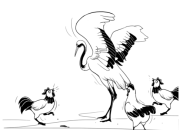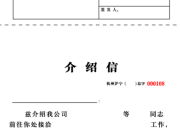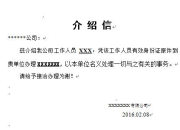英语现在完成时课件
时间:2021-08-31在完成时表示到说话时为止(或到现在为止)已经发生或完成了(不一定结束)的动作或状态。下面是小编为大家推荐现在完成时课件的内容,希望能够帮助到你,欢迎大家的阅读参考。
一、引入:-Did you visit Beijing before?-Yes, I did.-No, I didn’t.
Have you ever visited Beijing?Yes, I ________.No,I ________.
Have you ever been to Beijing?Yes, I ________.No,I ________.
二、定义:现在完成时表示到现在为止已经完成或仍在持续的动作、状态;强调对现在的影响或联系。
三、结构:have/has+p.p.(动词过去分词)
接触一:肯定句式现在完成时的肯定句式是“have(has)+过去分词”。如:
①We have just finished our homework.
②She has gone home.
注意:
1)该句式中的have或has是助动词,has用于第三人称单数,其它人称一律用have。
2)该句式中have(has)和过去分词之间可用just插入。
3)把该句式译成汉语时,往往用“已经”、“刚刚”、“过”或“了”等。
接触二:否定句式:现在完成时的否定句式是“haven't(hasn't)+过去分词”。如:
⑥We haven‘t studied Unit 2 yet.
⑦The train hasn't stopped yet.
接触三:疑问句式现在完成时的一般疑问句式是把助动词have或has提到主语之前。
③Have you read this story book yet?
特殊疑问句及反意疑问句结构如下:
④What have you done with my bike?
⑤You've read this story book, haven't you?
注意:1)现在完成时的`一般疑问句往往在句末加yet。
2)把现在完成时的一般疑问句译成汉语时,
往往译成“……过吗?”、“已经……了吗?”等。
3)其肯定回答用“Yes,...have(has).”,
否定回答用“No,...haven't(hasn't).”,有时用“No,not yet.”或“No,never.”。
四、过去分词(规则+ed)
1)Worked,visited,asked,played,stayed2)likedlivedmoved
3)stoppeddroppedrobbedplanned,preferred4)carried,worried,tried,cried
五、现在完成时常与一些词、词组连用:
1、ever(曾)、never(未曾)、already(已经)、
yet(仍、还)、just(刚刚)、before(以前)
2、for +一段时间:for two days有两天了
3. in the past/last+一段时间:in the past ten years在刚过去的十年里
4. since +过去某一个时间:since 1991 :自从1991年到现在
一段时间+ agosince 14 years ago:自从14年前到现在
一般过去时句子:since I was born :自从我出生到现在
already, yet, ever, never, just的用法
Already肯定句,强调已经的意,放句中或句末.
I have already finished my homework.
= I have finished my homework already.
yet否定句、问句,表示还没,没有的意思,放句末
He hasn’t finished his homework yet.
Has he finished his homework yet?
ever问句,表示曾经的意思Has John ever been to Zhuhai?
never含否定意思的肯定句,表示从没的意思He has never been to China.
just肯定句,表示刚刚的意思I have just come back from China.
练习:用already, yet, ever, never, just填空
1.Have you seen the film ()?
2.Have you done your homework ()?-Not (), I will do it after supper.
3.Have you () been to England?-no, ().
4.I have () finished reading the book.
5.I have () paid for the car.
for, since及how long
For +时间段:表示某个动作持续了多长时间
Joey has been in New York for 10 years.
Since +时间点(具体时间/ … ago/某个动作发生的时间):
表示某个动作是从什么时候开始的,间接地表示这个动作持续的时间
Joey has been in New York since 1996.
Joey has been in New York since ten years ago.
Joey has been in New York since he first arrived.
两者都可以回答由How long引导的问题。
How long has Joey been in New York?
练习:用for, since及how long填空
1.The wind has blown () 2 hours.
2.The dog has stayed there () it ate its dinner.
3.() has the old man lain in bed?
4.The teacher has thought about the problem () yesterday.
5.The horse has run () quite a long time.
6.The ducks have swum () thirty minutes.
7.The poor child has worn the old clothes () 7 years old.
六、have been to, have gone to
Have (has) been to表示曾经到过某地(通常现在已经回来了)
My mother has been to London twice.妈妈去过两次伦敦。(妈妈现在已经回来了,在家)
Have (has) gone to表示已经去了某地(通常不在说话的地方)
My mother has gone to London.妈妈去了伦敦。(妈妈现在就在伦敦,不在家)
练习:
1.Jenny is well-traveled. She has ______________ to Germany twice.
2.Jane isn’t in now. She has ______________ to the office. Can I take a message?
3.My father is a successful businessman. He’s ______________ to many countries.
4.It’s a dangerous place. Nobody has ever ______________there.
5.The manager has ______________to Beijing. He will be back tomorrow.
6.The tiger of the zoo is missing. None of us knows where it has______________.
have been to,have been in,have been
Have been to去过某地,现在不在那里I have been to Paris. Now I am staying in Zhuhai.
Have been in一直呆在某地,后接地点
I came to Zhuhai in 2004. So I have been in Zhuhai for 2 years already.
Have been后接名词和表状态的词组I have been a teacher since 2004.
I have been at No. 4 Middle School for 2 years.
练习:
1.A: Where’s Jim, Li Lei?
B:He ______________the school library.
2.The Greens _____________China for three years.
We _____________the Great Wall twice. It’s very beautiful.
1.Some of us have ______________ Zhuhai for only a week.
2.Susan has ______________ in this band for over five years.
3.My father has ______________Guangdong several times.
4.It has ______________a long time since I first met Johnny.
5.He loves Zhuhai and he has ______________ there quite a few times.
6.Judie has always______________a good student and her classmates like her.
7.Tony has ______________ America before, so this time he will travel to France.
8.Betty’s ______________ at home for three days. She doesn’t feeling like going out.
9.The boss has ______________ the office since early this morning. He works hard.
七、瞬间动词和持续性动词用于完成时的区别
延续动词表示经验、经历;
瞬间动词表示行为的结果,不能与表示段的时间状语连用。
Hehas completedthe work. 他已完成了那项工作。(表结果)
Juliahas borrowedthe book.Julia已经借了那本书。
I've known him since then. 我从那时起就认识他了。(表经历)
Julia has kept the book for 3 days.Julia已借了三天这本书了。
用于till / until从句的差异
延续动词用于肯定句,表示“做……直到……”瞬间动词用于否定句,表示“到…才…”
Hedidn‘tcome backuntil ten o’clock.他到10点才回来。
He sleptuntilten o'clock. 他一直睡到10点。
瞬间动词不能和表示一段时间的时间状语连用,但是他可以转换成相应的延续性动词.
1.直接用延续性动词
buy– havecatch(get) a cold –have a coldborrow—keepCome/go /become—be
put on-- wear
2.转换成be+名词
join the army – be a soldier
Join the Party –be a Party member
go to school– be a student
3转换成be+形容词或副词
die—be deadfinish – be overbegin—be on
leave—be awayfall sleep – be asleepclose – be closed
4.转换成be+介词短语
go to school– be in schooljoin the army – be in the army
1.我们买这本书三年了.
We have had the book for three years.
We bought the book three years ago
2.他感冒三天了.
He has had a cold for three days.
He caught a cold three days ago.
1. His uncle ____________ (die) for two years.
2.He left his hometown three years ago.(改为同义句)
He ________ _______ _________ _______ his hometown for three years.
瞬间动词和持续动词的练习
判断正误:
1.Ann has become a teacher for 4 years.
2.Maria has borrowed the CD from me for a over a week.
3.Jeff hasn’t had a day off since last Monday.
4.Normanhas put the machine right for a few hours.
5.The students have finished the homework for a while.
6.The front door has been open for 8 hours already.
7.The meeting has lasted for two hours and a half.
8.Berryhas been late for school several times this term.
9.I have met Philip once.
10.The Greens have eaten the supper for two hours.
八、现在完成时和一般过去时的区别
现在完成时表示过去发生的某一动作对现在造成的影响或结果,强调的是现在的情况,所以它不能和过去具体的时间连用,而过去时可以.一般过去时常和过去时间短语连用。
1.He ____________(work) in our school for one year.
2.He ______(come) to our school last year/in 2002.
3.They _______________(cook) the supper already.
4.They ___________ (cook) the supper half an hour ago.
练习:Finish the sentences with the correct tenses:
A city ________(be) born beside the Pearl River2000 years ago. Laterit__________ (become) bigger and more important. It _______________ (change) a lotin the last few years. Nowthe Baiyun Hills,Tianhe and Fangcun_______________(be) parts of the City. Baiyun hotel ___________(be) once the tallest building in China.But nowmany buildings _________ ( be) much taller than it . People in Guangzhou ____________(build) many new buildingsthese years. In its long life, the city ___________(have) four names.Do you know what are they ?
【英语现在完成时课件】相关文章:
2.现在完成时态课件
3.现在完成时课件











